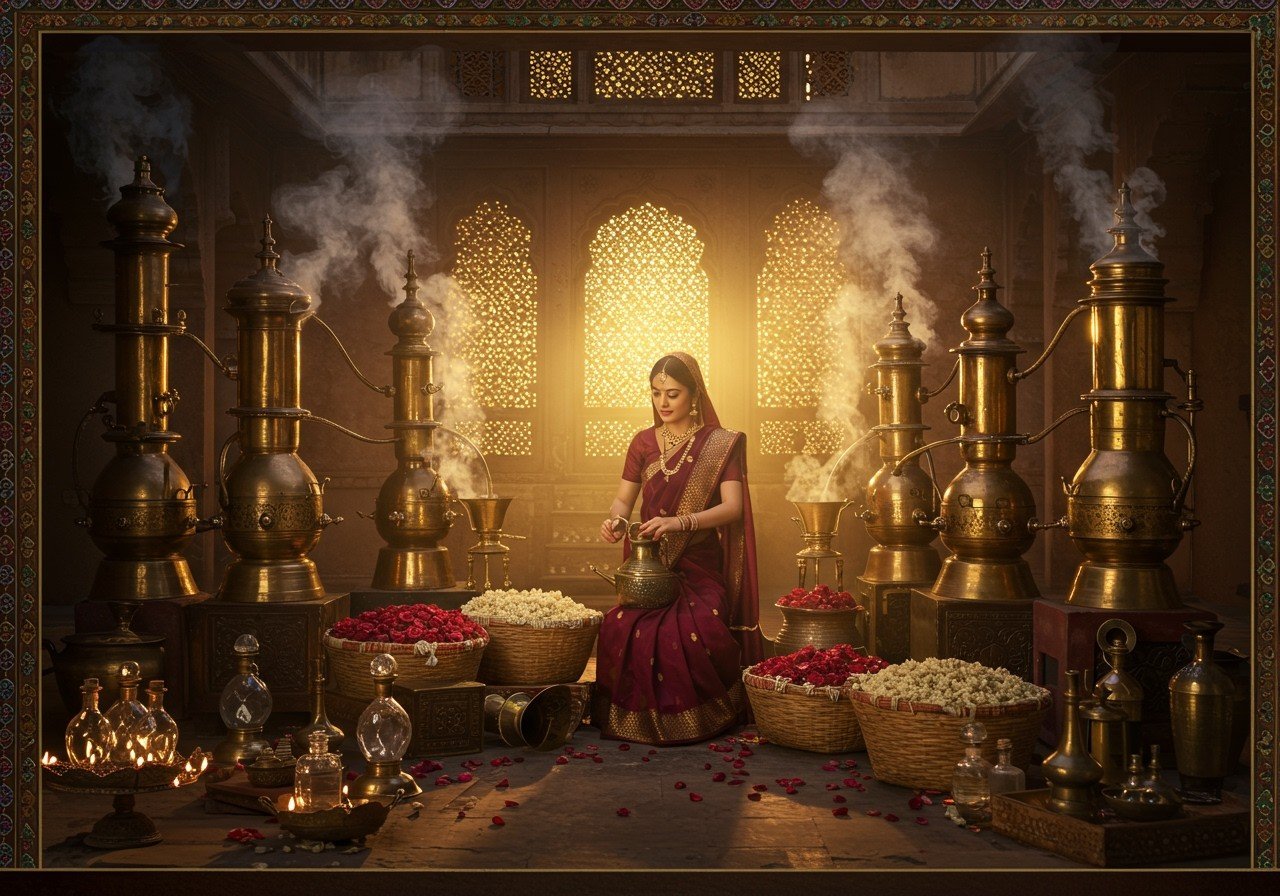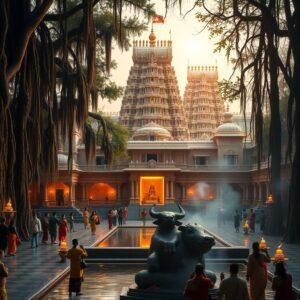
Kannauj, often called “the perfume capital of India,” possesses a rich history, vibrant culture, and an enchanting world of fragrances. Its legacy in perfumery dates back over 400 years, crafting exquisite scents from flowers like rose, jasmine, and sandalwood. This article delves into Kannauj’s captivating story, appealing to those who appreciate tradition and authenticity.
Historical Significance
Kannauj boasts a fascinating past, serving as an imperial capital during the Harsha dynasty around the 7th century. It thrived as a significant political and cultural center in ancient India, mentioned in classical texts and historical accounts, including those of Chinese traveler Xuanzang. The city’s evolution through various dynasties—Rajputs, Mughals, and British—shaped its cultural and architectural landscape, evident in archaeological discoveries that reveal its historical grandeur.
Cultural Heritage
Kannauj’s rich cultural tapestry is woven with traditions, festivals, and local customs. Influenced by various dynasties, its art, architecture, and culinary practices are unique. Heritage sites like the Kannauj Fort and ancient temples, such as the Annapurna Temple, narrate the city’s glorious past. Kannauj plays a vital role in preserving classical Indian music, dance forms, and traditional crafts, passed down through generations.
Kannauj: The Perfume Capital
For over 400 years, Kannauj has excelled in the art of perfumery. The traditional deg bhapka distillation method, using copper vessels, is central to producing natural attars (essential oils). The city’s climate and local flora are ideal for cultivating fragrant flowers, resulting in diverse attars like rose, jasmine, and sandalwood, used in rituals, Ayurveda, and perfumery. Though facing modern challenges, Kannauj strives to preserve this heritage craft.
Modern-Day Kannauj
Kannauj continues to evolve while honoring its historical and cultural essence. Its perfume industry remains a significant economic contributor. Initiatives promoting Kannauj’s heritage through tourism and cultural festivals are underway, supporting local artisans and preserving traditional crafts. The city embraces globalization and technology while safeguarding its cultural identity.
Experiencing Kannauj: A Traveler’s Guide
For those eager to explore Kannauj:
- Key Attractions: Discover historical sites like Kannauj Fort, ancient temples such as Annapurna Temple, and bustling local markets offering unique experiences.
- Perfume Workshops: Witness traditional perfume-making at workshops and purchase authentic attars, immersing yourself in the city’s fragrant heritage.
- Festivals and Performances: Attend local festivals to witness traditional performances, experiencing the vibrant culture firsthand.
- Best Time to Visit and Accommodation: Plan your trip during cooler months (October to March) and find comfortable accommodation options to enhance your stay.
- Local Cuisine: Savor the delicious local cuisine, adding a culinary dimension to your Kannauj experience.
Supporting local artisans by purchasing their crafts helps preserve Kannauj’s rich heritage.
Poojn.in Enhances Your Kannauj Experience
Poojn.in, India’s largest Dashakarma bhandar, offers authentic ritual items that connect you with Kannauj’s fragrant heritage. Complementing the city’s renowned attars, we provide pure dhoop, agarbatti, and other fragrant items. For traditional Kannauj-style rituals, Poojn.in offers:
- Pure cotton dhotis
- Traditional puja items and samagri
- Authentic agarbatti and dhoop
- Brass and copper items
- Complete puja kits
Explore our collection at Poojn.in and bring the essence of Kannauj home.
Embracing Kannauj’s Essence
Kannauj is more than a city; it’s an experience. By exploring Kannauj, you connect with a rich tapestry of history, culture, and fragrance. Supporting local artisans helps preserve this legacy. Create memories that honor the past and celebrate the beauty of tradition.
FAQs about Kannauj
What makes Kannauj famous? Kannauj is renowned for its history, heritage, and particularly its fragrances, earning it the title “Perfume Capital of India.”
Why is it called the “Perfume Capital”? Kannauj’s long tradition of producing natural attars and essential oils, using traditional methods, gives it this title.
What is Kannauj’s historical significance? Kannauj was a prominent center of trade and culture in ancient India, ruled by various dynasties like the Mauryas, Guptas, and Mughals.
What are some key heritage sites? Kannauj boasts sites like Raja Jaichand’s fort and the Gauri Shankar temple, reflecting its rich past.
What’s unique about its fragrance industry? Kannauj’s perfumery stands out for its traditional extraction methods, creating natural scents without alcohol or chemicals.
Can I visit perfume workshops? Yes, many workshops welcome visitors, offering insights into attar production and the chance to buy authentic fragrances.
What types of fragrances are made? Kannauj produces diverse fragrances, including rose, jasmine, sandalwood, and vetiver, used in perfumes, cosmetics, and therapeutic applications.
Where can I buy Kannauj perfumes online? You can find authentic Kannauj perfumes on Poojn.in, ensuring quality and convenience.


